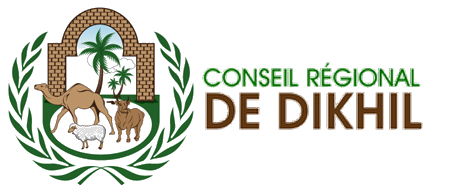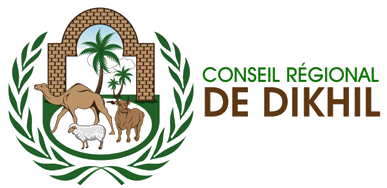The Importance of Teamwork for Achieving Success in Moving Projects
In the realm of relocation endeavors, effective execution hinges on the synergy between individuals working towards a common goal. Collaboration emerges as a fundamental element, transforming a daunting task into a seamless experience. When people unite their strengths, the process becomes not only efficient but also enjoyable.
Strategic role assignment plays a critical part in optimizing the efforts of each participant. By clearly defining responsibilities, it fosters an environment where everyone understands their contribution to the overall mission. This clarity minimizes confusion and enhances productivity, ensuring that all aspects of the endeavor are addressed promptly.
Moreover, encouraging communication among all members strengthens the bonds within the group, paving the way for innovative solutions and shared successes. Ultimately, a collaborative spirit enriches the experience and leads to remarkable outcomes in any relocation venture.
Coordinating Tasks for a Seamless Transition Experience
Effective execution during relocation relies heavily on collaboration among team members. By establishing clear role assignments, everyone can contribute to an organized and efficient process.
- Define Roles:
- Identify each person’s strengths and assign tasks accordingly.
- Create a checklist to outline specific responsibilities for individuals.
- Establish Communication:
- Set up a group chat or platform for real-time updates.
- Conduct brief meetings to discuss progress and address challenges.
- Monitor Progress:
- Regularly check in on team members to ensure tasks are on track.
- Be flexible and adapt roles if certain tasks take longer than expected.
- Foster a Supportive Environment:
- Encourage team members to assist one another as needed.
- Celebrate milestones to maintain motivation throughout the process.
By meticulously coordinating tasks and ensuring synergy within the group, the relocation experience can transition from a source of stress to a manageable endeavor. Collaboration not only strengthens bonds but also leads to an overall more enjoyable experience for everyone involved.
Strategies for Communication Among Team Members During a Move
Effective communication is vital for seamless collaboration during relocation efforts. Each member must be aware of their role assignment to ensure smooth operations. Establishing clear channels for information exchange can prevent misunderstandings and enhance productivity.
Regular check-ins and status updates help maintain momentum and allow team members to share progress on their tasks. Utilizing group messaging apps can facilitate quick communication and keep everyone informed on changes or unexpected challenges.
Additionally, organizing a pre-move meeting to outline responsibilities and expectations can contribute significantly to the team’s efficiency. During this session, members can voice concerns and clarify their roles, leading to more effective execution of duties.
Encouraging an open environment where individuals feel comfortable asking questions or offering suggestions can foster stronger bonds among team members. This sense of unity not only aids in problem-solving but also enhances the overall experience of those involved in the transition.
Lastly, implementing a feedback loop post-move allows the team to reflect on their communication strategies and identify areas for improvement. This continuous learning process will ultimately contribute to more cohesive teamwork in future relocations.
Building a Cooperative Spirit to Enhance Team Morale
Fostering a collaborative environment is crucial for boosting morale among team members during the labor-intensive process of relocation. When individuals feel connected and valued within a group, their engagement levels significantly increase, paving the way for enhanced productivity and satisfaction.
Effective role assignment is essential for achieving this cooperative spirit. By clearly defining each person’s responsibilities, each member understands their unique contribution to the collective effort. This clarity not only minimizes confusion but also empowers individuals to take ownership of their tasks, leading to more effective execution.
Encouraging open dialogue is another vital component. Regular check-ins and discussions about progress help maintain transparency and allow team members to share their insights and challenges. This shared communication fosters a sense of community, reinforcing the idea that everyone is working toward the same goal. To learn more about this collaborative approach, visit https://superstarmovingla.com.
Celebrating achievements, both big and small, can also greatly enhance team morale. Acknowledging hard work creates a positive atmosphere where individuals feel appreciated, thus motivating them to maintain high levels of performance while collaborating effectively. By creating a culture of recognition, moving groups can achieve smoother operations and fulfill their objectives.
Ultimately, nurturing a cooperative spirit within a relocation team leads to a more enjoyable experience for all involved, resulting in better outcomes and lasting camaraderie. Strong interpersonal relationships among members not only contribute to successfully navigating the logistics but also create memories that extend beyond the confines of the task.
Evaluating Team Performance Post-Move for Future Improvements
Assessing the outcome of collaboration is essential for refining processes in future relocations. After completing a relocation, it is crucial to analyze the effectiveness of role assignment and overall performance metrics. Gathering feedback from each participant can reveal insights into what worked well and what areas require enhancement.
One effective approach is conducting a debriefing session where team members share their experiences. This collaborative review allows individuals to express their thoughts on coordination, highlight successful strategies, and pinpoint challenges faced during the task. Encouraging open dialogue fosters an environment for constructive criticism and reinforces a commitment to improvement.
Moreover, documenting the lessons learned can help create a playbook for future endeavors. By identifying strengths and weaknesses in execution, teams can develop strategies that utilize successful techniques while addressing any shortcomings. This iterative evaluation process is key to continuous advancement and ensures that subsequent undertakings benefit from past experiences.
Finally, recognizing individual and collective contributions enhances morale and encourages ongoing dedication to excellence. Acknowledgment of efforts not only builds camaraderie but also motivates team members to participate actively in upcoming assignments, ensuring that each relocation is smoother than the last.



Les commentaires sont fermés, mais les trackbacks et les pingbacks sont ouverts.